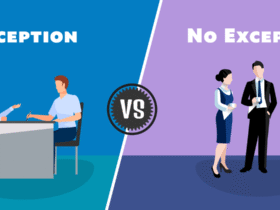Divorce is rarely easy. It takes a toll, and it involves a complex legal maze. It could have big effects on your future. Understanding your rights and options is crucial during this challenging time. This article gives a clear guide to divorce law. It helps those facing a divorce.
No-Fault Divorce: Shifting the Focus
No longer must one prove fault, like infidelity, to get a divorce. Modern legal systems recognize that sometimes marriages simply break down. Many jurisdictions now have a “no-fault” basis for divorce. You can get a divorce if the relationship has irretrievably broken down. A period of separation often shows this. If you are considering this, know the local laws. Specific rules state how long do you need to be separated before divorce in Australia can be granted.
Dividing Assets: What’s Fair is Not Always Equal
“Who gets what?” is one of the most common – and often emotionally charged – questions in a divorce. This process, called property settlement, aims to fairly divide the assets gained during the marriage. However, “fair” doesn’t always mean a 50/50 split. Courts consider various factors:
- Length of the Marriage: Imagine a couple married for two years versus a couple married for twenty. The longer the marriage, the more intertwined the finances. This may lead to a more even distribution.
- Financial Contributions: This goes beyond just income. We consider contributions as a homemaker, a caregiver, or a supporter of a spouse’s career.
- Future Needs and Earning Capacity: A court might see that a disability limits one spouse’s ability to earn in the future. The other spouse has a high-paying job. These factors ensure a division that addresses the long-term needs of both parties.
Property settlement is complex. It requires a deep understanding of the law and precise documentation. Seeking advice from experts like Stewart Family Law can protect your interests.
Spousal Maintenance: Bridging the Financial Gap
If there’s a large income gap between spouses, the court may order alimony. If one spouse put their career on hold to raise children, spousal maintenance can provide temporary support after a divorce. It can help if they are at a financial disadvantage.
The duration and amount depend on factors like:
- the marriage length
- each spouse’s earning capacity
- Their future needs.
Protecting the Children: Custody and Support
When children are involved, their well-being becomes paramount. Courts prioritize the child’s best interests in custody and support cases.
- Custody: This isn’t always about which parent “wins.” Courts seek stable arrangements. They consider each parent’s ability to provide a loving, supportive home. They also consider the child’s bond with each parent and, depending on their age, the child’s wishes.
- Child Support: The non-custodial parent typically contributes financially to their child’s upbringing. Calculations vary but often consider both parents’ incomes and the child’s needs. This ensures the child has a similar standard of living after the divorce.
These decisions can be emotional. Experts like Stewart Family Law can protect the child’s best interests.
Finding Common Ground: Alternative Dispute Resolution
Divorce doesn’t have to mean a bitter court battle. ADR methods, like mediation and collaborative law, are less adversarial. They offer better paths to resolution.
- Mediation: A neutral third party helps you and your spouse communicate. They will help you find solutions about property, custody, and other issues. This can be less stressful, less costly, and less time-consuming than traditional litigation.
- Collaborative Law: Both spouses hire lawyers trained in collaborative practice. They work together to settle without going to court.
Frequently Asked Questions about Divorce Law
How long does a divorce take?
It varies a lot. It depends on the case’s complexity, court schedules, and the couple’s ability to agree. It can range from a few months to several years.
Do I need a lawyer to get a divorce?
While not always mandatory, it’s highly recommended. A family lawyer has expertise. They protect your rights. They negotiate for you. They ensure the paperwork is filed correctly.
What are the main stages of a divorce?
While specifics vary, it usually involves: filing a petition, serving the other spouse, disclosing finances, and negotiating a settlement via mediation. Finally, a court order finalizes the divorce.
What happens if we can’t agree on child custody?
The court will intervene. It will prioritize the child’s best interests. It will consider each parent’s ability and the child’s wishes, depending on age.
Can I change a divorce decree after it’s finalized?
It’s challenging, but possible. It typically requires a significant change in circumstances and court approval.
Seeking Expert Guidance
Divorce is a significant life change with lasting implications. While this article provides a general overview, laws vary depending on your jurisdiction. You must consult an experienced family lawyer. They will help you understand your rights and obligations. They can also advise you on the best action for your situation. Remember, knowledge is power. Legal advice can help you navigate this tough time with more confidence.













Leave a Reply